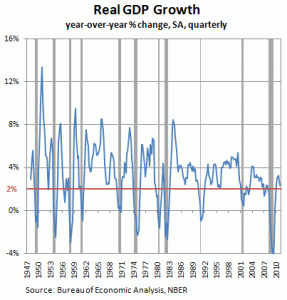By de Lange:
“The Auditor-general has uncovered billions of rand in unauthorised, irregular and fruitless and wasteful expenditure in the audit of
government books for the 2010/11 financial year.Auditor-General Terrence Nombembe and his team identified a whopping R26.4 billion in such spending – up from R22.4bn in the previous
year – which includes instances of tender processes being ignored or subverted, friends and relatives of public servants
participating in government procurement and a lax attitude to monitoring how taxes are spent.”
Via New Vision:
A top-level African Union (AU) team yesterday discussed ways to press for an inclusive government in Libya, with several African countries still refusing to recognise the new leadership in Tripoli.
South African president Jacob Zuma hosted the meeting in Pretoria for the AU panel, which also included the leaders of Uganda, Mauritania, Mali and Congo-Brazzaville.
Denis Sassou Nguesso of Congo and Yoweri Museveni of Uganda attended the talks, along with Mauritania’s foreign affairs minister and Mali’s ambassador to Pretoria.
None of the leaders spoke to journalists as they entered the meeting.
Although about 20 African countries have recognised the National Transitional Council (NTC) in Libya, the AU has so far refused to do so and is instead sticking to its “roadmap” for Libya, which calls for an inclusive government in Tripoli.
South Africa’s foreign affairs minister Maite Nkoana-Mashabane told reporters on Tuesday that the new government should “include all sectors and representatives of all the regions of Libya.”
Libya’s interim leader Mustafa Abdel Jalil was justice minister under fallen leader Muammar Gadaffi, but the South African minister said it was not enough.
“I don’t think if you have one or two people we would then say this is all-inclusive,” she said.
Nkoana-Mashabane insisted that the NTC knew “exactly what the AU meant by an all-inclusive interim government”.
She, however, stopped short of saying Gadaffi loyalists should be included.
The AU has, however, conceded that Gadaffi would not play any role in talks on the country’s future.
Zuma has repeatedly lashed out at NATO over the bombing that helped the rebels’ military victory in Libya.
South Africa voted for the UN resolution, imposing a no-fly zone over Libya, but accused the alliance of overstepping its mandate.
Last month, South Africa tried, but failed to use its non-permanent seat on the UN Security Council to block the release of seized Libyan assets to be used for emergency aid in the country.
South African deputy president suggested that the NATO commanders be investigated for war crimes.
By Johannes Zutt on Africa can…end poverty:
Kenya is in the midst of a quiet revolution—but many people, even in Kenya, seem to be unaware of it, or the enormous governance improvements that it is likely to bring.
We saw a new Kenya emerging last Friday when President Kibaki presided over an historic event that was hard to imagine in the old Kenya: the launch of a government website, www.opendata.go.ke , that makes enormous volumes of government data available to the public in user-friendly formats.
For the first time in Kenya’s history, core government data on population, the budget, education, health care and other public services are available to policy-makers, researchers, ICT developers, and citizens in an easily-accessible format. This portal is one of the first and largest government portals with reusable data in sub-Saharan Africa, making Kenya one of the world’s leading exemplars of open data (see Time magazine’s “Silicon Savanna”).
Andy Sumner asks whether there’s “a new kind of fragile state”:
What do Pakistan, Yemen, Nigeria, Iraq, Ivory Coast, Sudan and perhaps Libya, Egypt and Tunisia have in common? Fragility and middle-income status.
[…]
In short, there are only 35 low-income countries remaining out of around 200 countries that the World Bank tracks. And that’s down from 63 in 2000 and this is projected to fall to perhaps 20 or so low-income countries by 2025.
[…]
In between the two ways of looking at countries – income and fragility – there is a new kind of country – countries which are fragile and middle income. This isn’t supposed to happen though is it? Countries are poor, then they stabilise and then they get rich don’t they?Maybe not any more. Look at the kind of countries that are both fragile and now middle income, taking the OECD’s combination of fragile states lists: Pakistan, Yemen, Nigeria, Iraq, Ivory Coast, Sudan (and perhaps now add Libya, Egypt and Tunisia).
[…]
Maybe being a poor and/or fragile state isn’t going to be the main international issue for peace and security in the future. Maybe instead it’s the fragile states who are not-so-poor?
Things start to get ugly in peripheral Europe. These are the 2-years bonds.

Dave Altig points out that:
[…] there has been a pretty reliable relationship between sustained bouts of sub-2 percent growth and U.S. recessions (indicated by the gray shaded areas). In fact, over the entire post-World War II era, periods in which year-over-year real GDP growth below 2 percent have been almost always associated with downturns in the economy.
Africa has a new largest country: Algeria.
And Sub-Saharan Africa (World Bank definition) also has a new largest country: DR Congo.
North Sudan lost about one third of its territory. There are about 1.6 million sq km left.
So now it seems to be number four in Africa and number two in Sub-Saharan Africa in terms of size of the territory.
(Source BBC:)
* Population: 7.5-9.7 million
* Size: 619,745 sq km (239,285 sq miles), larger than Spain and Portugal combined
* Major languages: English, Arabic (both official), Juba Arabic, Dinka
* Religion: Traditional and a Christian minority
* Main export: Oil